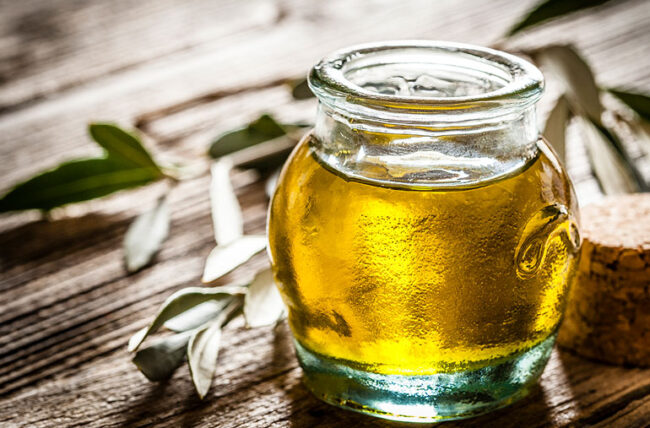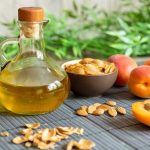You might need a little extra slip on your slide . You may be approaching menopause and your skin is more parched. You might want to do something different or new with your partner.
There are many lubricants available that go beyond the typical drugstore brands. There are lubricants that work better on your sexy bits than others. You might be surprised to find out which ones are the best.
Can you use lotion for lube? It’s probably not the best idea. Even though honey may be “natural,” it’s not the best choice. Talia Crawford, MD explains the reasons and answers “What can I do instead of lube?”
Different types of lubricants
Dr. Crawford says that people use lubricants for a variety of reasons. You might use lubricants for pleasure, to relieve vaginal drierness in menopause, or to make sex anal more enjoyable. You might also want to try a novelty lubricant to enhance sensation.
There are three main types of lubricants that you can find in most drugstores:
- Oil based Lubricants are the most durable. Use them only with latex Condoms and Dental Dams. Oils break down the latex, causing condoms to tear more easily.
- Silicone lubricants are safer for condoms of all types and last longer than water based lubricants.
- Water based lubricants can be the least irritating. They dry out faster than other types.
What if you prefer a natural lubricant or something that you have at home? “You can choose from a variety of options, but you should also avoid certain things,” says Dr. Crawford.
What can be used instead of lubricant?
Don’t reach for the first thing you see when it’s time to get sexy. The wrong lube may cause irritation, a burning sensation or even an infected. The best lubricants won’t cause irritation or have a negative impact on vaginal hygiene.
These are some choices that you can make to be safe:
Use oils as lubricants
Many natural oils can be used as lubricants for sex. Dr. Crawford suggests oils (preferably organic), such as:
- Coconut Oil.
- Hemp seed oil
- Grape Seed Oil
- Extra virgin olive oil
- Vegetable oil
- Sunflower oil
She also likes Vitamin E Oil for lubrication.
The oils that Dr. Crawford recommends are not likely to cause irritation or infection in the vaginal area. These oils are also good for those who want a natural lubricant.
Use oil-based lubricants only if you are using a dental dam or a condom made of latex. Oils can break down the latex in a condom or dental shield, causing tears.
Natural water-based lubricants
Dr. Crawford offers some suggestions if you don’t like olive oil or prefer something that is water-based.
Look for a lubricant that is water-based and contains vitamin E and aloe.
Check to see if it contains propylene glycol, nonoxynol-9, or chlorhexidine-gluconate (or any other spermicides). She suggests avoiding lubricants that are scented or perfumed, or those with claims of warming, cooling, or tingling effects.
Aloe vera is also available in pure gel form. Aloe vera gel will dry out quickly and may not provide enough glide.
Avoiding Lubricants
Dr. Crawford warns women against the use of certain common products for lubrication, particularly during vaginal sex.
She says that the following substances should be avoided as sex-lubricants.
Animal-derived substances
Avoid butter, egg yolks, fish oils, and yogurt. Animal proteins can disturb healthy bacteria, causing vaginal irritation or infection.
Cleaning products
Hand soaps and shampoos all have a pH. The pH of a vagina is naturally acidic. This imbalance can lead to vaginal irritation and infection.
Creams and lotions
Skin moisturisers contain fragrances or other irritating ingredients. They also tend to dry too quickly when used as lubricant.
Saliva
The bacteria that live in your mouth are different from the ones in your vagina. Infections can be caused by mouth bacteria.
Sugary substances
Avoid sweeteners such as agave, syrup or honey. Sugars can alter the vaginal environment and create an infection risk. Sugars can also cause clumping and scratches.
Synthetic Oils
Vaseline (r) and baby oil can irritate your delicate tissues.
Avoid these ingredients when buying lubricants in stores
Check the back of any lubricants you buy. Some common lubricants can cause irritation and burning.
Dr. Crawford suggests avoiding the following ingredients in your lubricants:
- Chlorhexidine Gluconate: Although this chemical is used to preserve food, it can cause irritation and burning in some individuals.
- Fragrances These scents almost always contain synthetic chemicals which may cause irritation.
- Glycerin This ingredient keeps lubricant slippery but can cause a yeast infection.
- Propylene Glycol: Propylene Glycol is a chemical that makes lubricants moist. However, some people may be sensitive to this chemical.
- Spermicides The chemicals in spermicides can be irritating and kill good bacteria. However, spermicides can be used to prevent pregnancy depending on the contraception method.
Dr. Crawford warns you against using lubricants that are “cooling” and “tingling”. The ingredients can not only increase your sensitivity when sexing, but they may also irritate sensitive areas.
You can experiment with different types. Stay away from the list of ingredients to avoid. Have fun, and don’t forget to enjoy yourself!






















